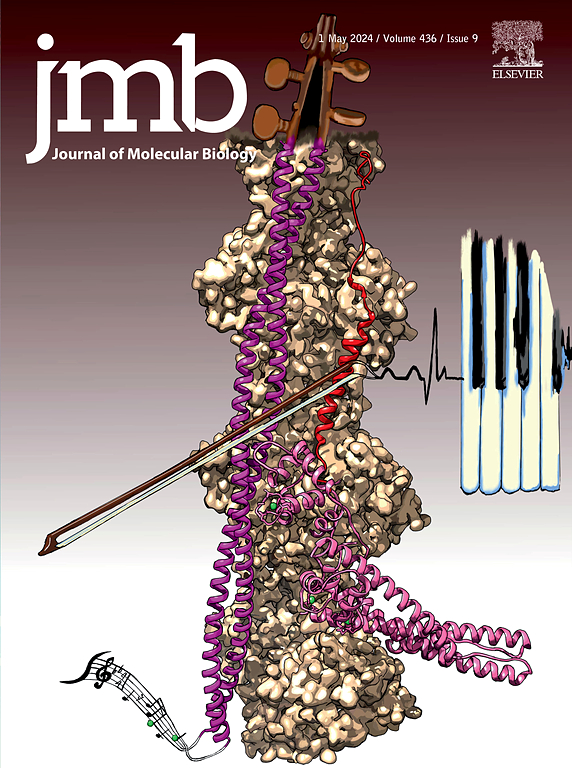无体外纯化的微生物间高效大尺寸DNA传递的通用方法。
IF 4.5
2区 生物学
Q1 BIOCHEMISTRY & MOLECULAR BIOLOGY
引用次数: 0
摘要
传统上用于微生物转化的纯化DNA质粒已被宿主细菌裂解释放的细胞外质粒所取代,为DNA-质粒递送提供了另一种方法。具体来说,从宿主枯草芽孢杆菌中解放的穿梭载体质粒直接用于转化大肠杆菌的化学活性细胞,无需生化纯化。这种非传统的DNA传递技术,被称为“细胞裂解技术”,提供可转换的细胞外DNA;CELyTED’已经成功地应用于微生物酿酒酵母的转化。该方案包括对供体宿主细胞高效细胞裂解的优化条件。值得注意的是,“CELyTED”能够将超过50 kb的大尺寸DNA质粒引入目标微生物,减轻纯化过程中物理剪切的潜在不利影响。这种简单的传递方案使其适用于原核和真核微生物,在合成基因组领域建立了一个基本的平台。我们的研究证明了利用供体宿主细胞的裂解物将大的DNA质粒引入大肠杆菌和酿酒酵母细胞的可行性,展示了“CELyTED”作为遗传转化方法的一种简化方法的潜力。本文章由计算机程序翻译,如有差异,请以英文原文为准。

Versatile Methodology for Efficient Large-sized DNA Delivery Between Microorganisms Without In vitro Purification
Purified DNA plasmids traditionally used for microbial transformation have been supplanted by extracellular plasmids released via host bacterial lysis, offering an alternative approach for DNA-plasmid delivery. Specifically, shuttle vector plasmids liberated from host Bacillus subtilis were directly employed for the transformation of chemically competent cells Escherichia coli, eliminating the need for biochemical purification. This unconventional DNA delivery technique, referred to as ’Cell Lysis Technology to provide Transformable Extra-cellular DNA; CELyTED’, has been successfully adapted for the transformation of microorganism Saccharomyces cerevisiae as well. The protocol includes optimized conditions for efficient cell lysis of the donor host cells. Notably, ’ CELyTED ’ enables the introduction of large-sized DNA plasmids exceeding 50 kb into target microorganisms mitigating the potential adverse effects of physical shearing during the purification process. This simplicity in the delivery protocol makes it versatile for both prokaryotic and eukaryotic microorganisms, establishing a fundamental platform in the synthetic genome field. Our study demonstrates the feasibility of introducing large DNA plasmids into cells E. coli and S. cerevisiae using the lysate of donor host cells, showcasing the potential of ‘CELyTED ’ as a streamlined approach in genetic transformation methodologies.
求助全文
通过发布文献求助,成功后即可免费获取论文全文。
去求助
来源期刊

Journal of Molecular Biology
生物-生化与分子生物学
CiteScore
11.30
自引率
1.80%
发文量
412
审稿时长
28 days
期刊介绍:
Journal of Molecular Biology (JMB) provides high quality, comprehensive and broad coverage in all areas of molecular biology. The journal publishes original scientific research papers that provide mechanistic and functional insights and report a significant advance to the field. The journal encourages the submission of multidisciplinary studies that use complementary experimental and computational approaches to address challenging biological questions.
Research areas include but are not limited to: Biomolecular interactions, signaling networks, systems biology; Cell cycle, cell growth, cell differentiation; Cell death, autophagy; Cell signaling and regulation; Chemical biology; Computational biology, in combination with experimental studies; DNA replication, repair, and recombination; Development, regenerative biology, mechanistic and functional studies of stem cells; Epigenetics, chromatin structure and function; Gene expression; Membrane processes, cell surface proteins and cell-cell interactions; Methodological advances, both experimental and theoretical, including databases; Microbiology, virology, and interactions with the host or environment; Microbiota mechanistic and functional studies; Nuclear organization; Post-translational modifications, proteomics; Processing and function of biologically important macromolecules and complexes; Molecular basis of disease; RNA processing, structure and functions of non-coding RNAs, transcription; Sorting, spatiotemporal organization, trafficking; Structural biology; Synthetic biology; Translation, protein folding, chaperones, protein degradation and quality control.
 求助内容:
求助内容: 应助结果提醒方式:
应助结果提醒方式:


